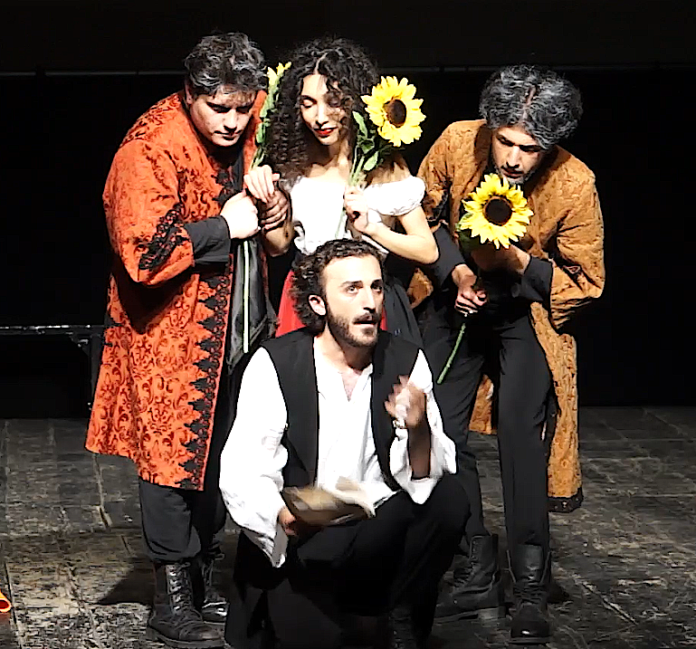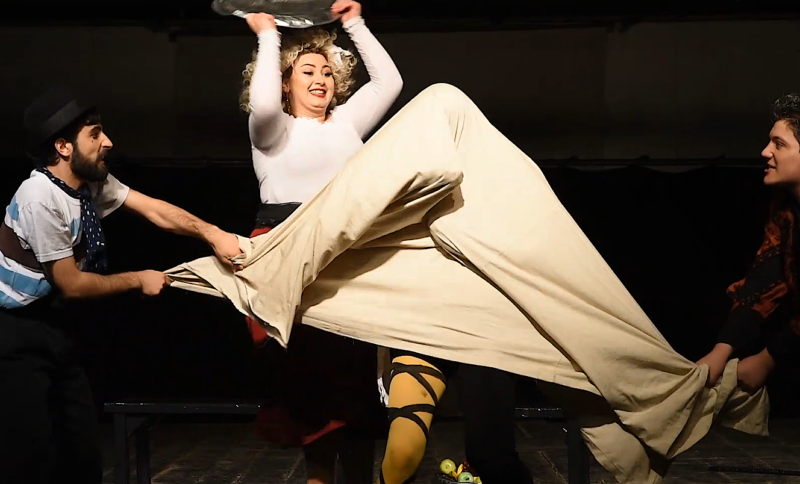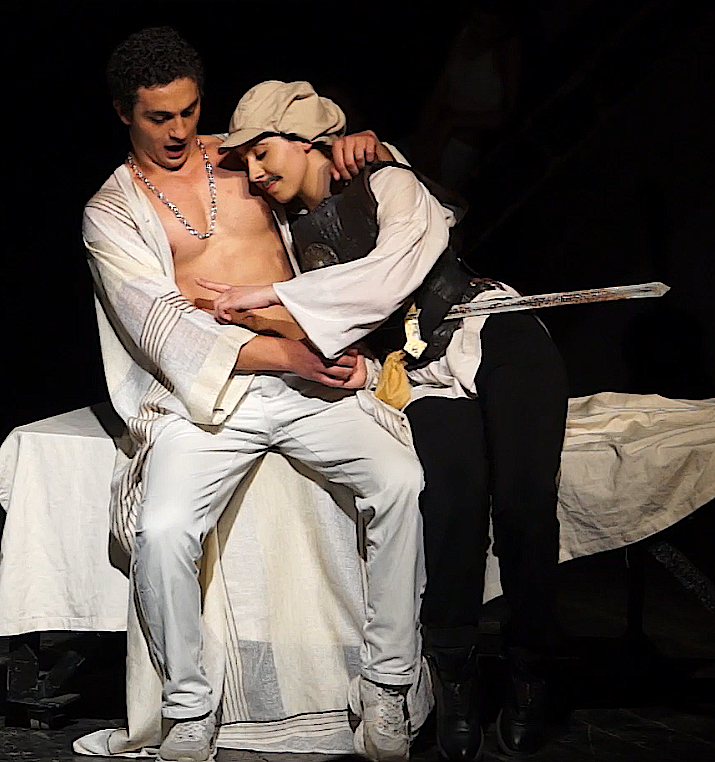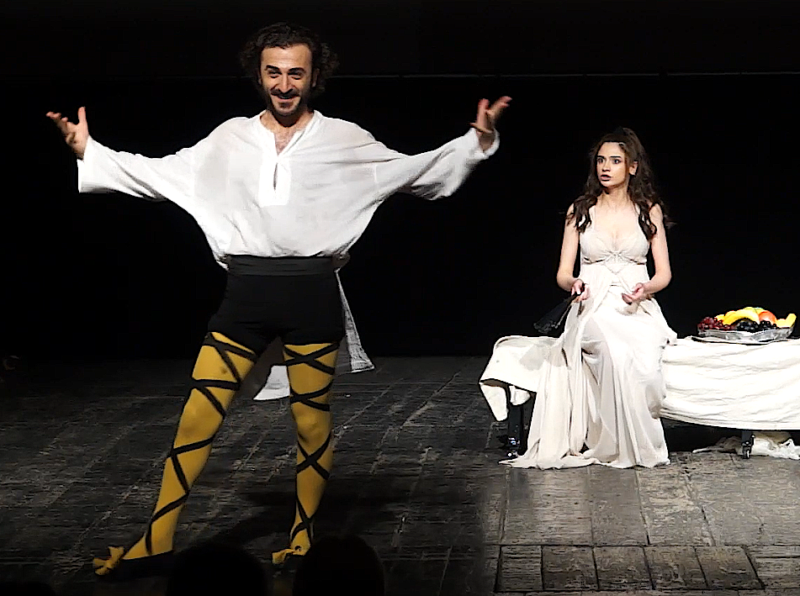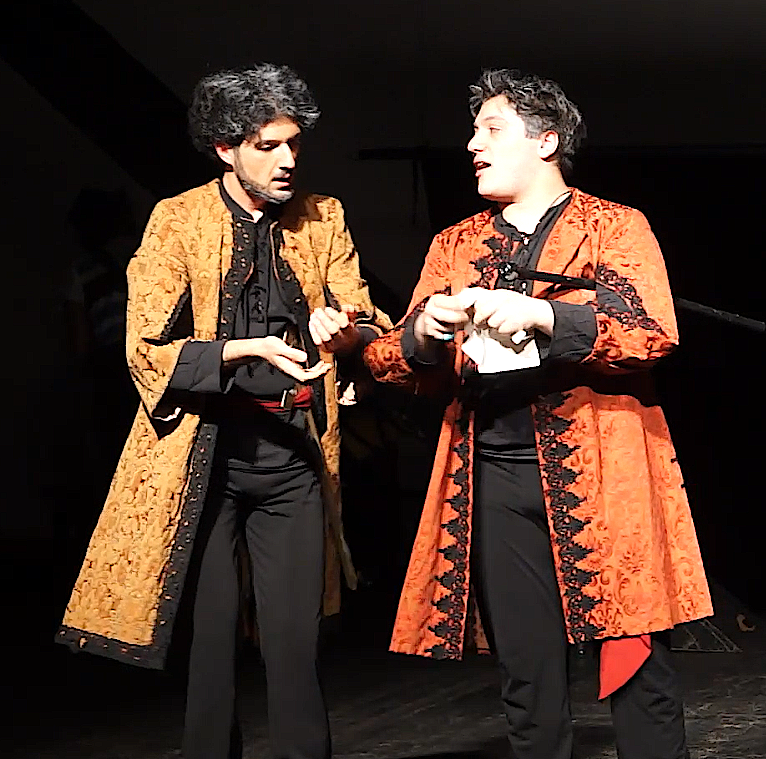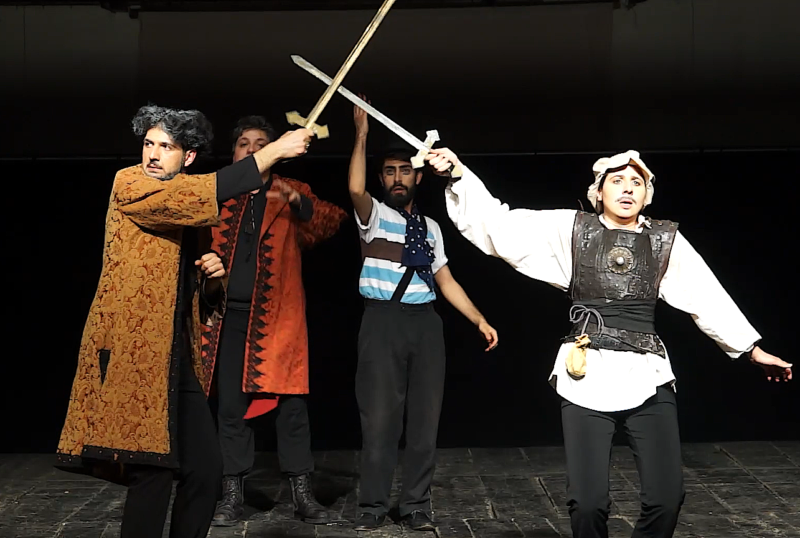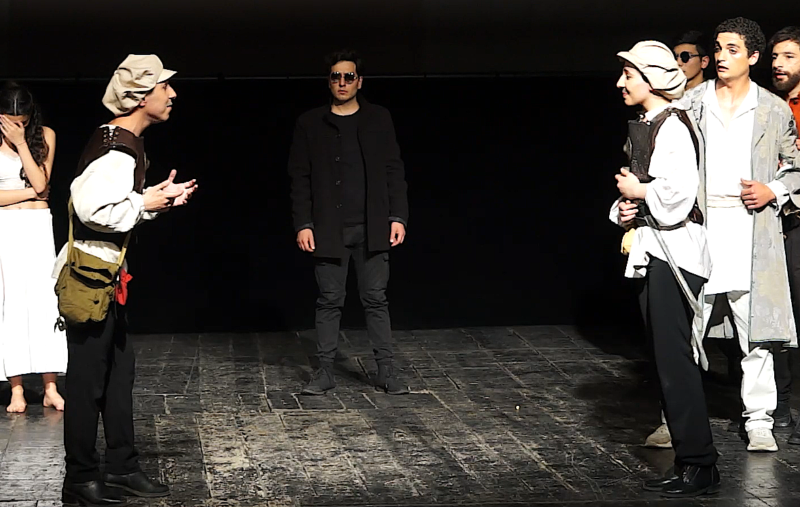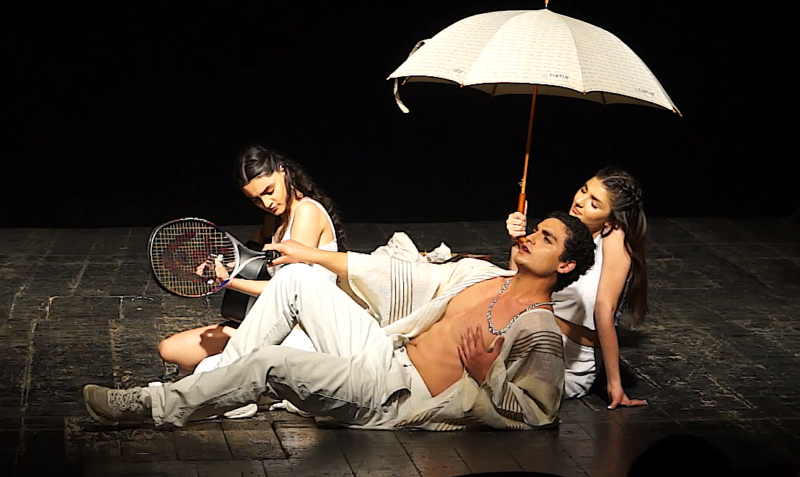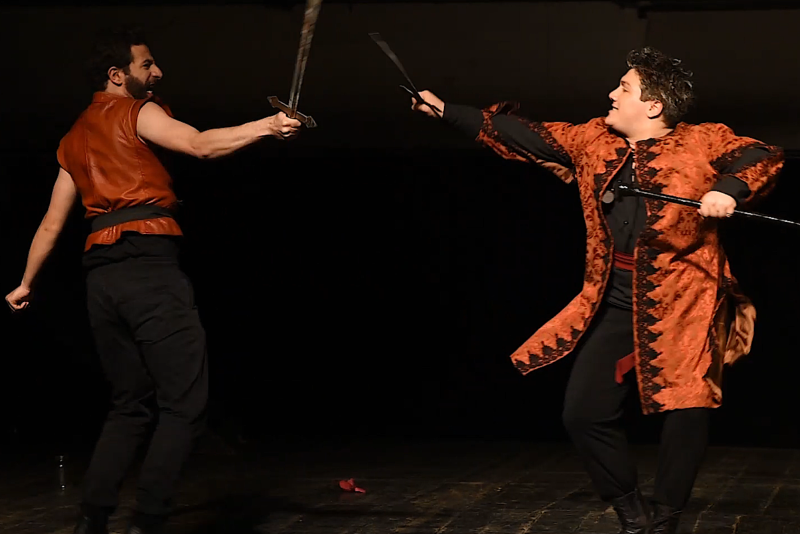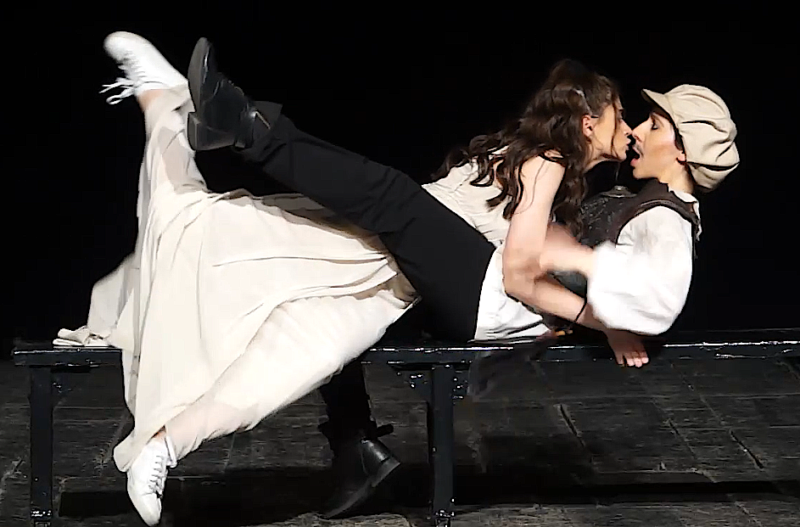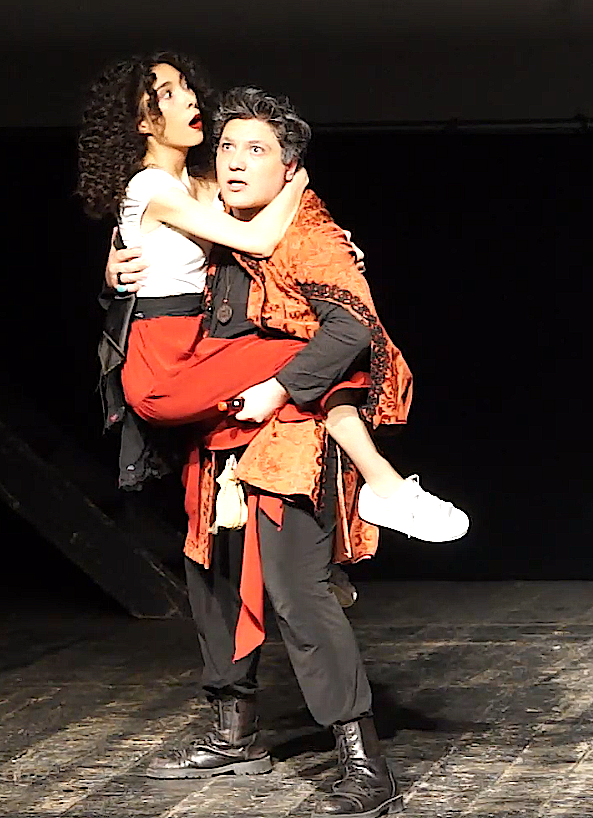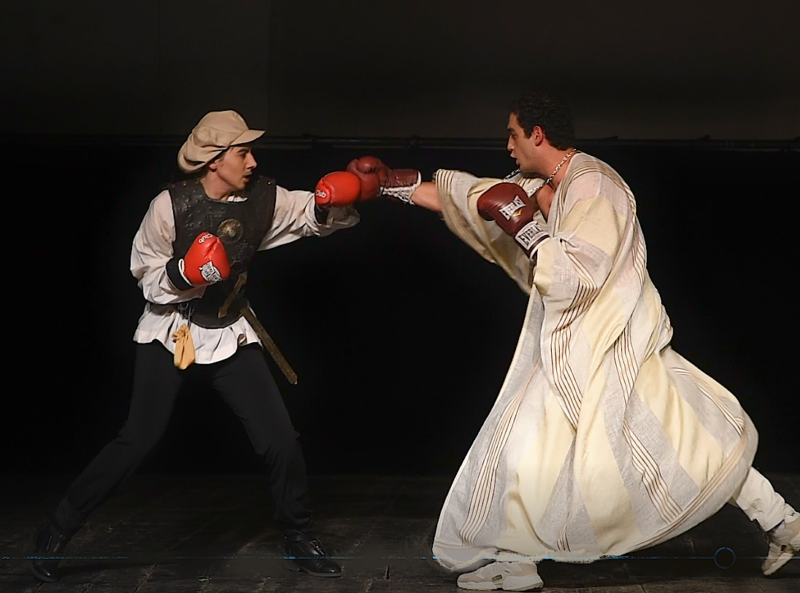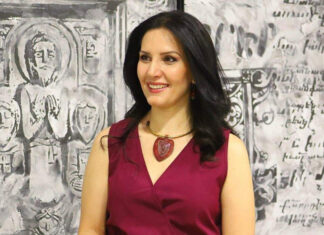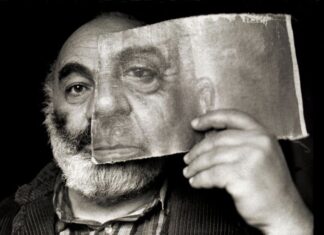By Ashot Grigoryan
Special to the Mirror-Spectator
YEREVAN – The play “Twelfth Night or What You Will” is one of Shakespeare’s masterpieces. On May 17, the Yerevan State Theater and Film Institute graduating students presented the second performance of the work (the first was on May 5), directed by Gerald Papasian. Originally an Armenian from Egypt, Papasian has spent a lifetime giving performances as an actor and a director on numerous stages across continents. Yet this student project was of a special value for him as Papasian himself was a 1976 graduate of the same Institute. After having roamed about the globe for 45 years, this was the first time he was invited to teach at the Institute. For a diasporan who had studied theater in Soviet Armenia, a remarkable, emotional and unique full circle indeed!
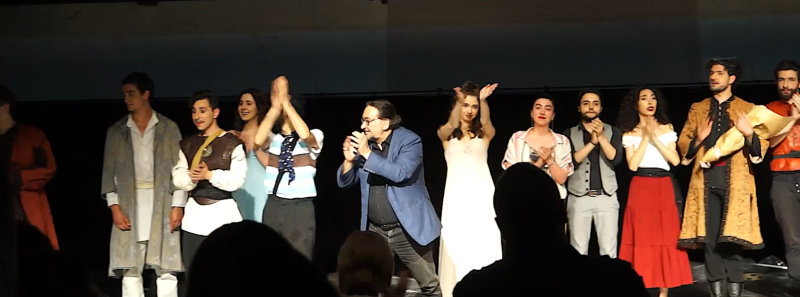
The choice of play made by Papasian was perfect for displaying the acting skills of as many students as possible and offering them the opportunity to express themselves in a variety of situations. However, Papasian was faced by a major, albeit common, problem, namely, the limitation imposed by a dire budget allotted to costumes and props. The solution offered by Papasian was ingenious. He had the side curtains to the stage removed, creating a completely open space all the way to the wings. This merged the minimalistic use of props into a general harmony of emptiness, innovative and curiously pleasant for the viewer. But most important of all it made the audience focus on the actors, giving them the occasion to reveal their talent and craft after 4 years of training.
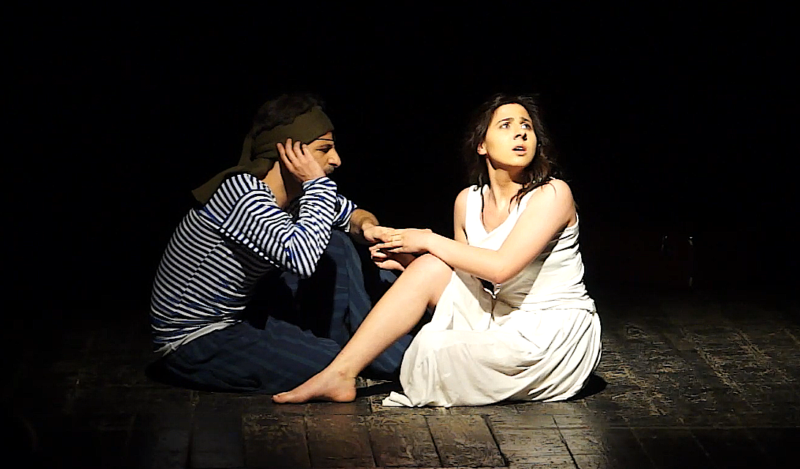
“Twelfth Night” is believed to be written in 1601–1602, on the occasion of the twelfth day after Christmas, as an entertainment for the close of the Christmas season, celebrated with masquerades and cheerful festivities. As a comedy of errors, the play includes parallel romantic stories and has several key characters. Papasian’s fast-paced directing brought to the forefront the dynamics of hilariously contrasting situations. Through his skillful staging, Papasian succeeded in conveying the joyful and festive mood intended by Shakespeare for the purpose of Christmas celebrations. As for the actors and actresses to be, they all gave brilliant performances and graduated with excellence.



